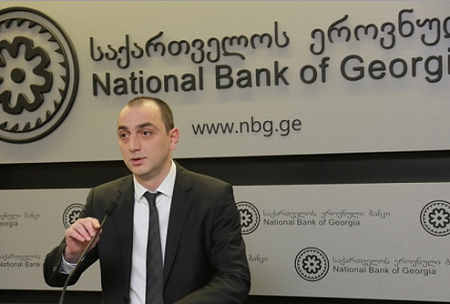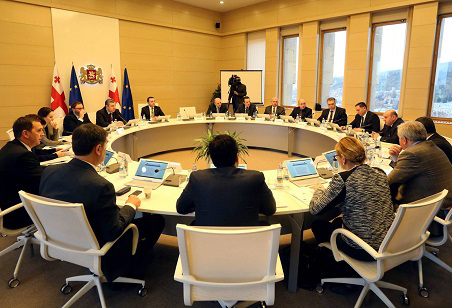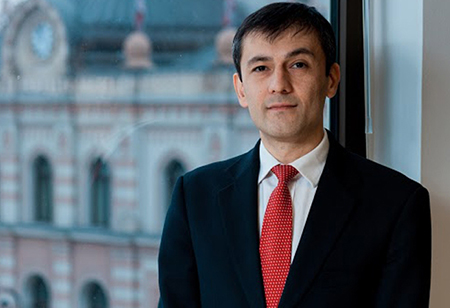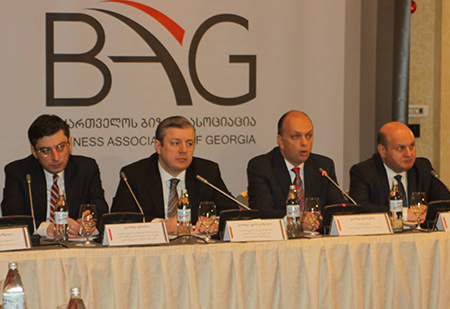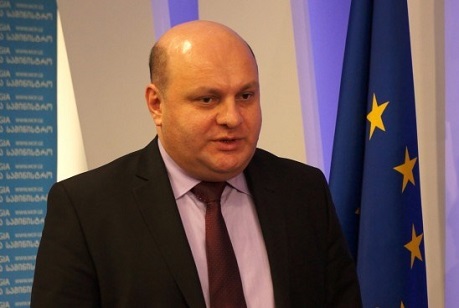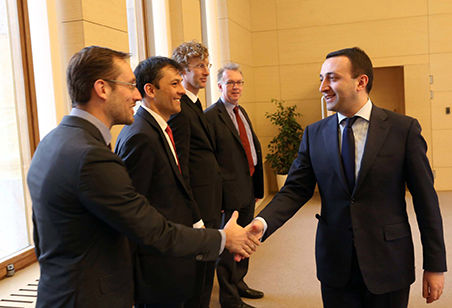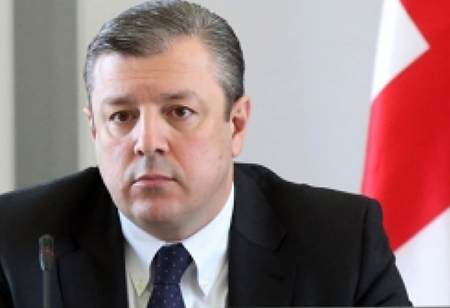Georgian Gov’t discusses ways to avoid price rises
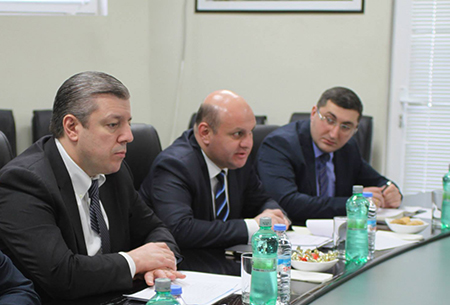
The Government of Georgia is pledging to do everything it can to avoid price increases on the cost of goods and services due to the ongoing depreciation of the national currency.
To help the country maintain and enjoy financial stability, the Government would "tighten its belt” announced Prime Minister Irakli Garibashvili.
Action has already begun and the Government’s economic team has started working with the National Bank of Georgia (NBG) to ensure the country’s monetary and fiscal policies remain consistent with each other.
Earlier today Georgia’s Finance Minister Nodar Khaduri said Georgia’s falling exchange rate was not unique and the national currencies of all other countries in the region were also depreciating against the greenback. As an example he named Azerbaijan, whose national currency Manat had depreciated by 33.5 percent against the US dollar.
"We have been working synchronously with the National Bank of Georgia in order to avoid price increases. The monetary and fiscal policies should be consistent with each other,” Khaduri said.
Meanwhile Economy Minister Giorgi Kvirikashvili spoke about Garibashvili’s point about the Government having to "tighten its belt” and said action needed to be taken so the Georgian public were not faced with price increases on basic goods and services.
He said the Government would revise the country’s economic growth forecast, which was earlier tipped to reach five percent in 2015, so that it was more consistent with the forecasts of neighbouring economies.
He also elaborated on the issue of reducing Government administration costs and explained "tightening the belts” did not mean reducing the salaries of public figures or foresee staff cuts at public institutions.
"When we see society affected by the depreciating value of the Lari, this is why we are going to reduce administration costs. As we face a 12 percent devaluation we aim to reduce administration costs by 12 percent accordingly. A detailed plan will be presented this week,” Kvirikashvili said.
"While talking about the plans, first of all I mean activating privatisation, which will bring results in shortest amount of time. There are several assets, including a Thermal Power Plant in Gardabani, which will be privatized,” Kvirikashvili said.
"The Partnership Fund, which has implemented the Gardabani Thermal Power Plant project, will leave the project and will start implementing new projects immediately. The possible income from the two [new] projects is about $250-300 million USD,” Kvirikashvili added.
Last week it was announced the Georgian Government had approached the International Monetary Fund (IMF) for additional financial aid in a bid to stabilise the country’s falling currency.
This week Khaduri said the Government would not take a loan from IMF but to hold meetings with IMF representatives who regularly visited Georgia.
"We will discuss the current economic situation in Georgia with IMF. We are not going to take a loan but will have consultations from them about other donors. We need an amount of money in order to implement different infrastructural projects and not to import it to the state budget,” Khaduri said.
The Government’s economic team is now exploring the idea of the World Bank, the Asian Development Bank and the European Bank for Reconstruction and Development as possible donor financial institutions, he said.
 Tweet
Tweet  Share
Share
